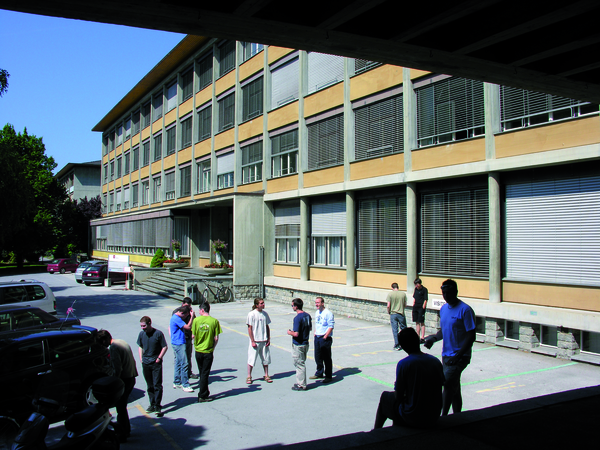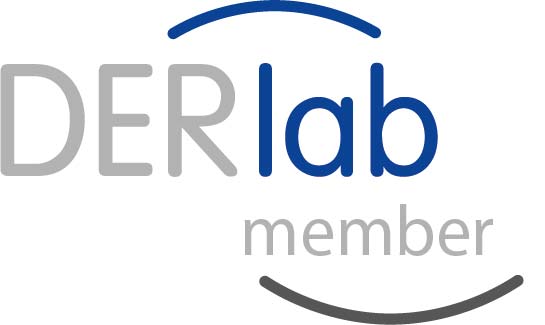 |
Country: Switzerland |  |
||
| Submit Testing/Consulting Request | ||||
Description: HES-SO is the University of Applied Sciences for Western Switzerland. The Institute of Systems Engineering, together with the other institutes of the HES-SO Valais, aims for the collaboration between economy, industry, higher education and politics and the development of new energy-related services and products.
HES-SO conducts the following activities:
- Reflections about the legal and political framework
- Economic evaluation of energy policy models
- Information and awareness-raising of political and economic decision makers
- Analysis of consumption (smart metering), development of information strategies for the consumer, development of technical solutions allowing to exploit the flexibility of consumption
- Development of new forms of production and exploitation of electric power (storage, pumping, turbining, mini hydraulics, new forms of energy, efficiency of supply systems)
- Improvement of energy efficiency through new concepts and the development of different technical devices
- Research in the area of new fuels (hydrogen, metal oxides)
- Adaptation of the training in order to provide a better understanding of the different facets of energy
- Outreach and information in different areas of energy
- Deployment of a full-scale demonstration and test 700 V DC microgrid, with PV generation (20 kW), battery storage, EV charger and Energy Management System (EMS), working either in islanding or in grid-connected mode.
And works in the following Research Fields:
- Hydropower
- Energy Optimization
- Energy Conversion
- Mechanical Design
- Powder Technology
- Optoelectronics
- Robust Electronics
- Communication Systems
Facilities:
Cyber-physical Smart Grid environment
- LV feeders
- lines emulated with discrete elements and real cables
- software controlled electonic converters
- software components emulating the behavior of entities connected to the grid (typically smart buildings)
- Energy Management System
PLC Test Bench
Description: A test infrastructure to measure EMC conducted disturbances and error rate on digital links
GridLab Automation
Description: GridLab Automation is a test bed for ICT (Information and Communication Technology) applied for grid control and management. Main topics are: smart metering, substation automation according to IEC 61850 / IEC 60870-5, and DER remote control and management (IEC 61850-90-7).
GridLab Dispatching
GridLab Local Storage
Description: The storage facility of the GridLab is an application oriented lab, with the goal to test and implement control strategies around batteries. Studied subjects: control algorithms, self-consumption optimization, monitoring, system topology and power electronics for batteries.
Technical specifications (PDF)
Technical specifications (PDF)
GridLab Low Voltage
GridLab Photovoltaics
GridLab Small Hydro
Description: A new universal test rig has been installed in the hydraulic laboratory to assess the hydraulic performances of different types of small-power axial and radial-axial turbines and/or pumps (less than 15 kW), valves as well as other components of hydraulic systems. Built on two floors, the closed-loop circuit is supplied by three recirculating multistage centrifugal pumps (with variable speed and a power of 5.5 kW each) connected in parallel. The three pumps can deliver a maximum discharge of 45 m³/h and a maximum pressure of 160 mWC. The pressurized reservoir placed downstream the test section allows simulating different implantation levels of the model and therefore recovering the cavitation performances. The operation of the test rig is controlled with an automatic system through a customized Labview® interface that allows for real-time measurement and display values of pumps speed, discharge, testing head, water temperature and Thoma number. The full capabilities of a NI cRIO 9074 are used to run an autonomous regulation system based on real-time measurements in order to keep constant the value of the desired parameters. The communication between the hydraulic test rig and further measurements/monitoring systems (e.g. testing model control system) is based on a wireless architecture. In addition, the test rig control system manages a dedicated cloud of variables and makes them available for client systems, and ensures safe data centralization and storage on model testing.
Technical specifications (PDF)
Technical specifications (PDF)
Testing Services:
- Continuing education courses on operation of hydro power plants and DER installation and operation
- Testing of distribution grid control solutions
- Testing of electromagnetic interferences in smart grids
- Design of energy management systems
- Design of electronic power converters
- Consulting on interoperability of smart grid and smart metering ICT solutions
last updated: 20.07.2017
HES-SO University of Applied Sciences and Arts Western Switzerland

